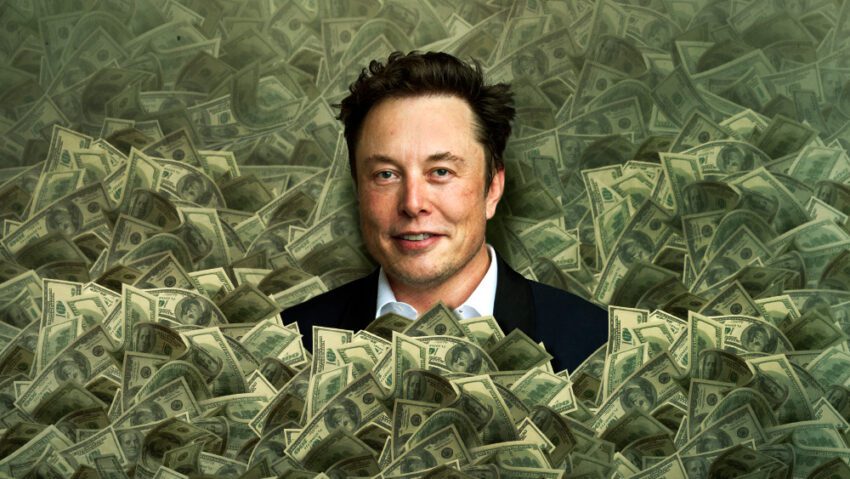
elon musk wins 1 trillion tesla pay Tesla shareholders have overwhelmingly approved a compensation plan that could see Elon Musk earning over $1 trillion in the next decade, contingent upon the achievement of ambitious operational and market value goals.
elon musk wins 1 trillion tesla pay
Shareholder Approval and Voting Outcome
During a recent shareholder meeting, Tesla announced that over 75 percent of shareholders voted in favor of the new compensation plan for Elon Musk. This significant majority reflects a strong endorsement of Musk’s leadership and vision for the company, despite ongoing criticisms regarding his role as a “part-time CEO.” The approval marks a pivotal moment for both Musk and Tesla, as it aligns the CEO’s financial incentives with the company’s long-term growth objectives.
Details of the Compensation Plan
The approved compensation plan is structured to reward Musk with a staggering 423,743,904 shares of Tesla stock. These shares will be distributed in 12 tranches, each consisting of 35,311,992 shares, contingent upon the company meeting specific operational goals and market value milestones. The ambitious targets set forth in the plan include:
- Delivering 20 million vehicles
- Securing 10 million Full Self-Driving subscriptions
- Delivering 1 million AI robots
- Deploying 1 million robotaxis
- Achieving a $400 billion adjusted EBITDA (earnings before interest, taxes, depreciation, and amortization)
These goals represent a significant escalation in Tesla’s operational ambitions, reflecting Musk’s vision of transforming the automotive and technology landscape. The targets are not only ambitious but also indicative of the company’s aspirations to lead in the fields of artificial intelligence and autonomous driving.
Context and Implications of the Vote
The approval of this compensation plan comes at a time when Tesla is navigating a highly competitive market. With traditional automakers ramping up their electric vehicle (EV) offerings and new entrants emerging, Musk’s leadership is seen as crucial for maintaining Tesla’s edge. The ambitious goals outlined in the compensation plan are designed to keep Tesla at the forefront of innovation while ensuring that Musk remains motivated to drive the company toward unprecedented growth.
However, the plan has not been without controversy. Critics have raised concerns about Musk’s commitment to Tesla, citing his involvement in multiple ventures, including SpaceX and Neuralink. The term “part-time CEO” has been used to describe Musk’s divided attention, leading some shareholders to question whether he can effectively lead Tesla while managing his other responsibilities. Despite these criticisms, the overwhelming approval of the compensation plan suggests that many investors remain confident in Musk’s ability to deliver results.
Musk’s Perspective on Leadership and Influence
In the lead-up to the vote, Musk expressed his views on the importance of having a significant stake in Tesla’s future. He articulated his concerns about the direction of the company, stating, “It’s not like I’m going to go spend the money. It’s just, if we build this robot army, do I have at least a strong influence over that robot army? Not control, but a strong influence. That’s what it comes down to in a nutshell. I don’t feel comfortable building that robot army if I don’t have at least a strong influence.”
This statement underscores Musk’s desire for a substantial role in shaping Tesla’s future, particularly as the company explores new frontiers in robotics and artificial intelligence. His comments also highlight the interconnectedness of his vision for Tesla and the broader implications of its technological advancements.
Market Reactions and Stakeholder Perspectives
The market’s reaction to the approval of Musk’s compensation plan has been mixed. While some analysts view it as a positive sign of shareholder confidence, others express concerns about the potential for excessive compensation tied to ambitious and potentially unattainable goals. The plan’s structure raises questions about the sustainability of such high compensation, especially if the targets are not met.
Investor sentiment is crucial in the context of Tesla’s stock performance. The company has experienced significant fluctuations in its stock price, influenced by various factors, including production challenges, regulatory scrutiny, and competition. The approval of Musk’s compensation plan could provide a temporary boost to investor confidence, but it also places immense pressure on Musk and the Tesla leadership team to deliver on the outlined goals.
Broader Implications for Corporate Governance
The approval of Musk’s compensation plan also raises broader questions about corporate governance and executive compensation practices. The decision reflects a growing trend among companies to tie executive pay to performance metrics that align with long-term strategic goals. However, it also highlights the potential pitfalls of such arrangements, particularly when ambitious targets may not be achievable within the specified timeframe.
Critics argue that tying executive compensation to aggressive performance goals can lead to short-term decision-making at the expense of long-term sustainability. The focus on rapid growth and market dominance may incentivize executives to prioritize immediate results over the company’s overall health and stability. This dynamic underscores the need for a balanced approach to executive compensation that considers both short-term achievements and long-term value creation.
Future Outlook for Tesla and Musk
Looking ahead, the approval of Musk’s compensation plan sets the stage for a critical period in Tesla’s evolution. The company is poised to embark on ambitious projects, including the development of its Full Self-Driving technology and the expansion of its product lineup. Achieving the outlined goals will require significant investment in research and development, as well as a commitment to innovation.
As Tesla aims to deliver 20 million vehicles and deploy a fleet of robotaxis, the company will need to navigate various challenges, including regulatory hurdles, technological advancements, and market dynamics. The success of these initiatives will not only impact Musk’s compensation but also shape the future trajectory of Tesla as a leader in the automotive and technology sectors.
Conclusion
The approval of Elon Musk’s compensation plan represents a significant moment for Tesla and its shareholders. With ambitious goals set for the next decade, the plan aligns Musk’s financial incentives with the company’s long-term growth objectives. While the overwhelming support from shareholders reflects confidence in Musk’s leadership, it also raises important questions about corporate governance and the sustainability of executive compensation practices. As Tesla embarks on this ambitious journey, the eyes of investors, analysts, and industry observers will be closely watching to see if the company can deliver on its lofty aspirations.
Source: Original report
Was this helpful?
Last Modified: November 7, 2025 at 4:38 am
2 views















